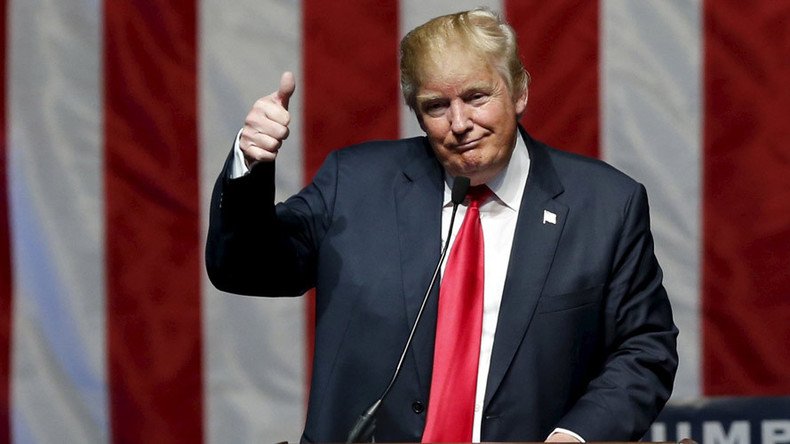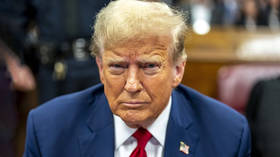'Not socially acceptable': Republicans more likely to support Trump in online polls – study

Donald Trump fans are less likely to admit their support during phone interviews because the response isn't “socially acceptable,” a new study says. A separate study found that 50 percent of voters would be “embarrassed” if Trump was elected.
The study released by polling and market research company Morning Consult on Monday, was launched in order to examine why Trump seems to do better in online polls than in phone surveys.
Throughout the presidential race, internet questionnaires have tended to show Trump with the support of nearly 40 percent of GOP voters, while telephone surveys have shown him as the chosen candidate of one-third or fewer.
The researchers interviewed 2,397 Republicans and Republican-leaning independents over a week in December. Respondents began the survey online, and about one-third continued to answer questions about Trump and other Republican primary candidates online. Another third answered the same questions with a live interviewer over the phone, and the final third answered the questions with an automated voice over the phone.
They found that 38 percent of people who answered on the internet supported Trump, compared to 32 percent who chose him on the phone with a live interviewer and 36 percent who answered questions with an automated voice recording.
Polling director Kyle Dropp explained the discrepancy as “social desirability bias,” noting that certain people identify with the things Trump says, but won't admit it because they don't believe others will approve.
“In other words, people are reluctant to select Trump when talking to another person because they do not believe it will be viewed as a socially acceptable decision,” he wrote.
Trump was found to perform worse on the phone with a live interviewer if the respondent had at least some college education.
“Among adults with a bachelor's degree or postgraduate degree, Trump performs about 10 percentage points better online than via live telephone. And, among adults with some college, Trump performs more than 10 percentage points better online,” Dropp said. Republicans with a high school education or less tended to favor Trump on the phone over online.
There was also a split between “engaged voters” – people who say they are very interested in the election or have previously voted in primaries or midterms – and the general registered voter population. In those cases, Trump's popularity online was eight to nine percentage points higher than in live telephone polling.
Trump Becomes Poster Boy for Efforts to Mobilize 2016 Latino Voters https://t.co/r2Nl53wQL1#TNTvote#AINF@nytimespic.twitter.com/viMu5a1rbr
— Romy (@RomyGOTV) December 22, 2015However, the six point difference was not seen in other candidates. “Ted Cruz, for example, did about 2 points better on live telephone, as did Ben Carson. Jeb Bush had no difference between the methods,” Dropp said.
Meanwhile, a Quinnipiac poll released Tuesday found that half of US voters said they would be “embarrassed” if Trump moved into the White House. Just under a quarter said they would be “proud” if he was elected president.
“Half of American voters say they’d be embarrassed to have Donald Trump as their commander-in-chief and most Americans think he doesn’t have a good chance in November, but there he is, still at the top of the Republican heap,” Tim Malloy, assistant director of the Quinnipiac University poll, said in a statement.
Trump was even more disliked among voters aged 18 to 34, with a whopping 73 percent saying they would be embarrassed if Trump became their next leader. Only 13 percent said they would be “proud.”
Females tended to particularly express distaste for the candidate, with six in 10 female voters saying they would be embarrassed, compared to four in 10 male ones.












